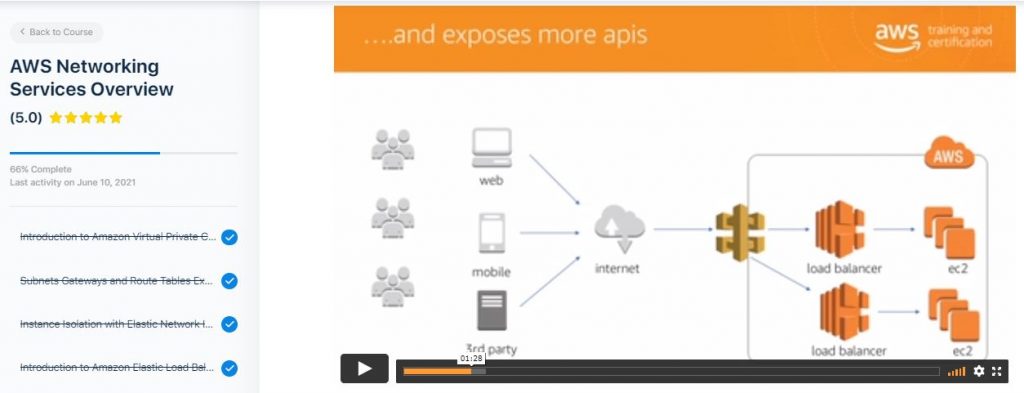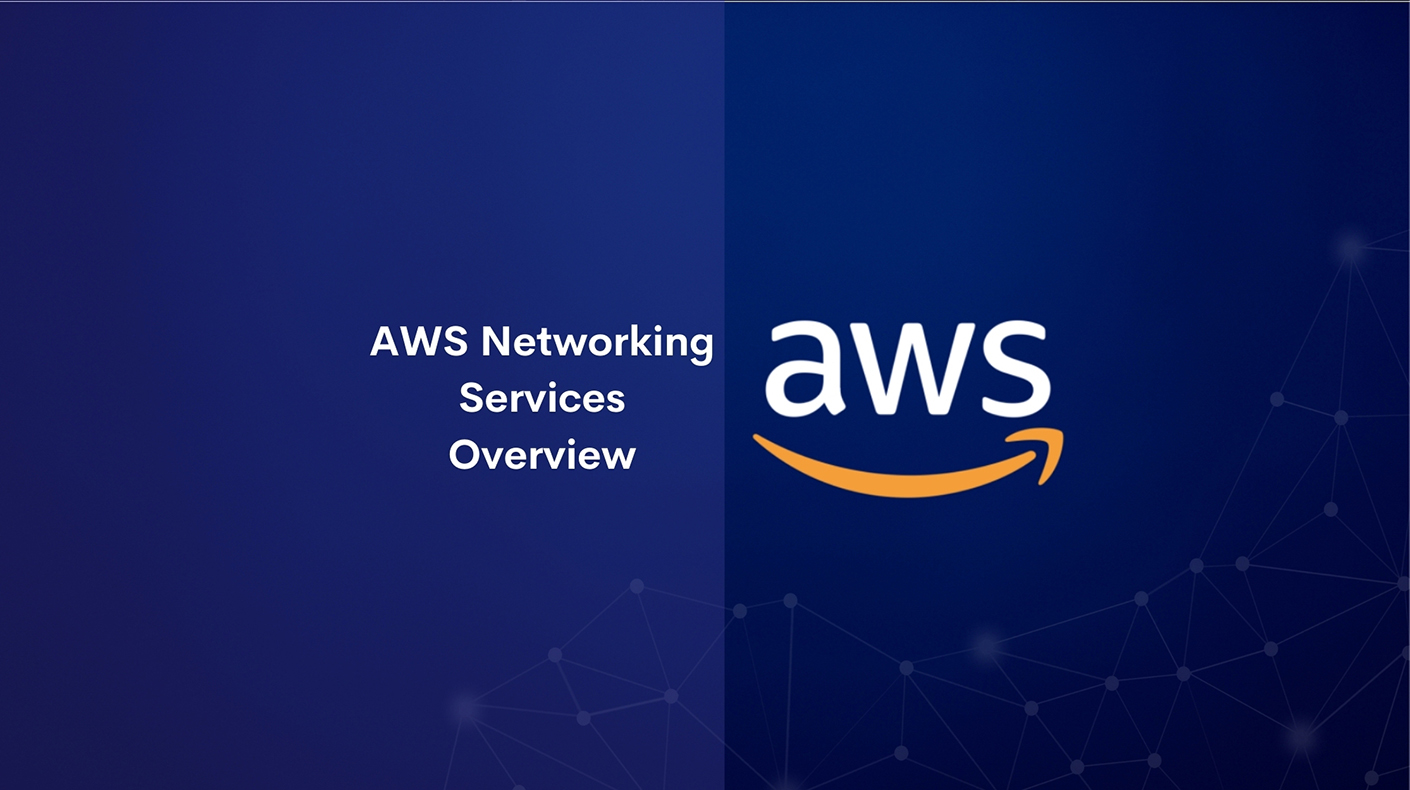Understanding AWS Networking Services: A Synopsis
AWS networking services refer to a suite of offerings designed to provide secure, scalable, and high-performance networking capabilities for various applications and workloads in the cloud. These services cater to a wide range of needs, from basic networking functions to advanced connectivity and security features. By leveraging AWS networking services, businesses can optimize their cloud infrastructure, streamline operations, and ensure seamless communication between different resources and applications.
Core AWS Networking Services: An In-Depth Analysis
Core AWS networking services form the foundation of a robust and secure cloud infrastructure, offering essential features and capabilities for various applications and workloads. Among these services, Amazon Virtual Private Cloud (VPC), Amazon Route 53, and AWS Direct Connect stand out as critical components.
Amazon Virtual Private Cloud (VPC)
Amazon VPC enables businesses to launch AWS resources into a virtual network that they define, with custom IP address ranges, subnets, route tables, network gateways, and security settings. This service provides a secure and scalable environment for deploying applications and workloads, ensuring optimal performance and control over network resources.
Amazon Route 53
Amazon Route 53 is a highly available and scalable Domain Name System (DNS) service that routes end users to applications hosted in AWS or other cloud providers. With features like latency-based routing, health checks, and geo-routing, Route 53 ensures high availability, fault tolerance, and efficient traffic management for applications and websites.
AWS Direct Connect
AWS Direct Connect establishes a dedicated network connection between a customer’s on-premises infrastructure and AWS, bypassing the public internet. This service offers enhanced security, improved bandwidth, and consistent network performance, enabling businesses to seamlessly extend their on-premises networks to the cloud.
Advanced AWS Networking Services: Enhancing Cloud Connectivity
Beyond core networking services, AWS offers advanced solutions that further optimize and secure network connections across multiple regions and Virtual Private Clouds (VPCs). These services, including AWS Transit Gateway, AWS Global Accelerator, and AWS VPN, cater to the needs of businesses requiring more complex and robust networking configurations.
AWS Transit Gateway
AWS Transit Gateway enables the interconnection of multiple VPCs and on-premises networks, creating a central hub for managing network traffic. This service simplifies the process of connecting and managing large-scale networks, improving performance, and reducing operational overhead.
AWS Global Accelerator
AWS Global Accelerator is a networking service that improves the availability and performance of applications with global users by directing traffic through the AWS edge network. By utilizing the global infrastructure of AWS, Global Accelerator ensures faster and more reliable connections, regardless of the user’s location.
AWS VPN
AWS VPN enables businesses to securely connect their on-premises networks or devices to AWS, extending their network infrastructure to the cloud. With support for both SSL-based VPNs and IPsec VPNs, AWS VPN offers flexible and robust options for establishing secure connections between remote networks and AWS resources.
Security Best Practices for AWS Networking Services
Security is a critical aspect of AWS networking services, ensuring the protection of cloud infrastructure and data. By implementing best practices and recommendations, businesses can safeguard their networking services and maintain a secure environment for their applications and workloads.
Security Groups
Security groups act as virtual firewalls for AWS resources, controlling inbound and outbound traffic based on predefined rules. By using security groups, businesses can restrict access to specific resources, ensuring that only authorized traffic is allowed.
Network Access Control Lists (ACLs)
Network ACLs are an additional layer of security for VPCs, providing stateless access control for inbound and outbound traffic. By implementing network ACLs, businesses can add an extra layer of security to their VPC resources, complementing security groups and further restricting unauthorized access.
VPC Peering
VPC peering enables the secure connection of two VPCs, allowing resources in different VPCs to communicate as if they were in the same network. By using VPC peering, businesses can extend their network infrastructure and securely share resources between different VPCs.
How to Choose the Right AWS Networking Services for Your Business
Selecting the most suitable AWS networking services for your business is crucial for ensuring optimal performance, security, and cost-effectiveness. By following a step-by-step approach and considering factors like scalability, security, cost, and performance, businesses can make informed decisions and implement the best networking solutions for their needs.
Step 1: Identify Your Business Needs
Begin by evaluating your business requirements, including the type and size of your applications, the expected traffic volume, and the desired level of security. This assessment will help you determine the networking services that best align with your needs.
Step 2: Evaluate Scalability and Performance
Consider the scalability and performance of various AWS networking services, ensuring that they can handle your expected traffic volume and support your applications’ growth. Services like Amazon VPC, AWS Transit Gateway, and AWS Global Accelerator offer high scalability and performance, making them suitable for businesses with growing networking needs.
Step 3: Prioritize Security
Security should be a top priority when selecting AWS networking services. Implement best practices, such as using security groups, network ACLs, and VPC peering, to safeguard your cloud infrastructure and data. Additionally, consider services like AWS Direct Connect and AWS VPN for secure connections between your on-premises infrastructure and the cloud.
Step 4: Assess Cost
Evaluate the cost of different AWS networking services, considering both the initial setup and ongoing maintenance expenses. While some services may have higher upfront costs, they might offer long-term savings due to their efficiency and performance. Striking a balance between cost and value is essential for making the right decision.
Step 5: Monitor and Adjust
After implementing AWS networking services, continuously monitor their performance and make adjustments as needed. Utilize tools like Amazon CloudWatch, AWS Network Manager, and VPC Flow Logs to track performance metrics and troubleshoot issues, ensuring optimal performance and minimal downtime.
Real-World Use Cases: AWS Networking Services in Action
AWS networking services have a significant impact on various industries and applications, enhancing performance, security, and scalability. This section showcases real-world examples of AWS networking services implementation, demonstrating their value and potential for businesses in e-commerce, gaming, and IoT.
E-Commerce: Improving Customer Experience
AWS networking services, such as Amazon Route 53 and Amazon VPC, enable e-commerce businesses to build highly available and scalable websites and applications. By leveraging these services, companies can efficiently manage traffic, ensure low latency, and maintain high availability, ultimately improving the customer experience.
Gaming: Enhancing Multiplayer Experiences
AWS networking services, like AWS Global Accelerator and AWS Transit Gateway, empower gaming companies to create seamless multiplayer experiences for their users. By optimizing network connections and reducing latency, these services help ensure smooth gameplay and satisfied customers.
IoT: Connecting and Managing Devices
AWS networking services, such as AWS Direct Connect and AWS VPN, facilitate secure and efficient communication between IoT devices and the cloud. By implementing these services, businesses can establish reliable connections, manage large device fleets, and safeguard sensitive data, ensuring a robust and secure IoT infrastructure.
Monitoring and Troubleshooting AWS Networking Services
Effectively monitoring and troubleshooting AWS networking services is crucial for ensuring optimal performance and minimizing downtime. By utilizing tools like Amazon CloudWatch, AWS Network Manager, and VPC Flow Logs, businesses can proactively identify and address issues, maintaining a reliable and efficient network infrastructure.
Amazon CloudWatch
Amazon CloudWatch is a monitoring and observability service that provides real-time visibility into AWS resources and applications. By using CloudWatch, businesses can track performance metrics, set alarms, and automate actions, ensuring that their networking services are running smoothly and efficiently.
AWS Network Manager
AWS Network Manager simplifies the management of global networks by providing a central location to monitor and manage network connectivity across AWS and on-premises infrastructure. By leveraging Network Manager, businesses can easily monitor network performance, identify issues, and troubleshoot connectivity problems, ensuring seamless communication between resources.
VPC Flow Logs
VPC Flow Logs capture information about the IP traffic going to and from network interfaces in your VPC. By analyzing VPC Flow Logs, businesses can identify network issues, understand network behavior, and troubleshoot security groups, network ACLs, and route tables, ensuring a secure and well-performing network infrastructure.
Staying Updated with AWS Networking Services: Tips and Resources
Staying informed about the latest AWS networking services updates is essential for businesses looking to maximize their cloud infrastructure’s potential. By leveraging official documentation, blogs, forums, and training programs, organizations can ensure they are utilizing the most up-to-date and efficient networking services.
Official Documentation
AWS provides comprehensive documentation for all of its networking services, offering detailed guides, best practices, and reference architectures. Regularly reviewing and studying this documentation can help businesses stay current on new features, improvements, and deprecations.
AWS Blogs
AWS maintains several official blogs, including the AWS Security Blog, AWS Networking Blog, and AWS Compute Blog. These resources cover a wide range of topics, including networking services updates, best practices, and real-world use cases, providing valuable insights for businesses looking to optimize their cloud infrastructure.
AWS Forums
AWS forums offer a platform for users to discuss and share knowledge about various AWS services, including networking services. Participating in these forums can help businesses stay informed about the latest developments, ask questions, and receive answers from AWS experts and the community.
AWS Training Programs
AWS offers a variety of training programs, including instructor-led courses, self-paced labs, and digital training, to help businesses and individuals learn about AWS networking services. By investing in these training programs, businesses can ensure their teams are well-equipped to manage and optimize their cloud infrastructure.





